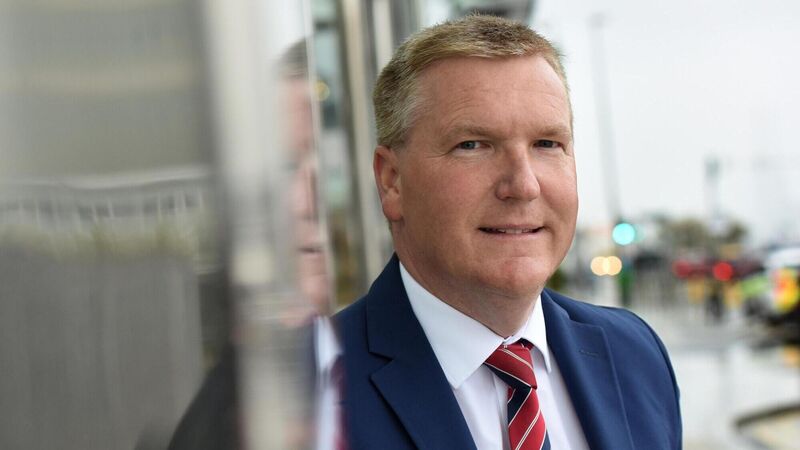McGrath hoping to introduce 'degree of flexibility' in social welfare system

Michael McGrath says Ireland needs to be flexible and dynamic in allowing people to work a certain number of hours without having to sign off the live register. Picture: Moya Nolan
Self-employed people will be able to work and retain their pandemic unemployment payment (PUP) under a plan to be announced on budget day, public expenditure minister Michael McGrath has said.
Mr McGrath said that because of the devastating impact of Covid-19, the social welfare system in Ireland needs to be flexible and dynamic in allowing people to work a certain number of hours without having to sign off the live register.
In an interview with the , Mr McGrath has said that Taoiseach Micheál Martin is “particularly keen” to help the self-employed cope with the economic fallout from the pandemic.
“One issue I know the Taoiseach was particularly keen to advance is that there would be a degree of flexibility, particularly for self-employed people," said Mr McGrath. "Maybe for those working in the arts, or in construction or in other parts of the economy, who might get a day or two days of work here and there, that they wouldn't have to entirely sign off and sign back on.
“So we are looking at possible options around a degree of flexibility to enable people to do that in a way with the minimum amount of fuss. That is being looked at.”
The Cork South-Central TD said that he and his officials are figuring out whether someone who worked one day a week would see their PUP reduced on a pro-rata basis or whether they retain the payment in its entirety.
“Those are the very issues that are being examined,” he said. “But I think we do need to have a social welfare system that is more flexible than in the past, given the circumstances that people are in, and especially for self-employed people,” he said.
“And arts minister Catherine Martin has made the case very well for people involved in the performances in the arts, and in the events sector, who might only get very occasional work now. The welfare system has to be dynamic and capable of accommodating the real-life situations that people encounter. So those issues are being examined.”
Mr McGrath, who is about to introduce his first budget, also revealed the Government is looking to shift away from buying private homes toward homes built directly by county councils.
Mr McGrath said he thinks councils across the country are not building enough of their own homes and are too reliant on the private sector to help address the country’s housing crisis.
“There are a lot of acquisitions and turnkey homes that are being secured by councils around the country,” he said. "There’s no secret in revealing this, but the focus of Government is to try and get councils and approved housing bodies building again, in a much more significant way.
“Some progress has been made, but I think it needs to be accelerated. I believe there's better value in councils building homes directly, and that's the direction that I think we need to underline in the budget.
“We're very keen as a Government to shift the emphasis to direct builds in terms of the delivery of public housing. That was always a core value of my party through our history, when there were far less resources available. So I'm working with housing minister Darragh O'Brien on that very issue.”
Meanwhile, the State has run up a €9.4bn deficit so far this year to combat the impact of Covid-19. Despite the impact of the pandemic, corporation tax receipts continue to over-perform and are now €1.6bn higher than to end-September last year.





